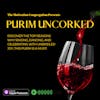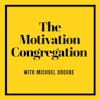The Villain's Unexpected Gift: Lessons From the Wicked Haman
Have you ever wondered how your fiercest critic could be your greatest teacher? Prepare to be enlightened as we uncover the hidden wisdom in the Purim story's villain, Haman, and learn why listening to our adversaries can offer life-altering insights. In an episode that brings Rabbi Yisrael Salanter's interpretations into the spotlight, we examine the value of paying attention to the critiques of our enemies. This concept can revolutionize our personal growth and strengthen the bonds within our community.
Rabbi Samson Raphael Hirsch offers insights to dissect Haman's description of the Jewish nation as dispersed yet distinct, providing us with a profound understanding of the resilience of Jewish identity. We'll explore how Torah laws enrich our lives, guiding us in happiness, faith, work ethic, and patience, and how these eternal values have shaped a culture of perseverance in the face of adversity. This episode promises to reignite your appreciation for the unique Jewish principles and inspire a deeper commitment to the cultural and religious tenets that have been both a target and a triumph over historical threats like Haman. Join us for this enriching journey through the Purim story as we seek to embrace the lessons that even our enemies can teach us.
Join the WhatsApp community for daily motivational Torah content! JOIN HERE
----------------
- SUBSCRIBE to The Weekly Parsha for an insightful weekly shiur on the Parsha of the week.
- Listen on Spotify or the new Jewish music and Podcast streaming platform 24six!
- Access all Torah talks and listen to featured episodes on our new website, themotivationcongregation.org
----------------
Questions or Comments? Please email me @ michaelbrooke97@gmail.com
It's a law of the jungle that you keep your friends close and your enemies closer, because, well, enemies are the really only place that you can get good advice, some helpful critique. Your friends. They love you and want to be nice to you. So we'll tell you sometimes a good word, and that's important. But when you want to know the truth about where you may have some weaknesses, you go to your enemy, because he'll be quick to give you his honest opinion. Bekomen molyme reyem, tishme una uznay, we say in Davening, and Rabbi Charles Solanter translates this Pasek to mean that when your enemy shall come near, you lean your ear in to listen to what he says, because that's the best muser. And so when it comes to the Purim story, when we have the ultimate antagonist mouthing off about the Jewish people, it would be a good idea to listen up for what Haman has to say, because he knows how to give us muser best.
Speaker 1:
And how does Haman define and identify the Jewish people when he gives the note and tells Achashverosh, oh, just get rid of these people, they're worthless. What does he say? There is a nation that is a mefuzar, umefurud benohamim, scattered, separated. They've been to every country in the world. They have a couple thousand people on the West Coast of America, a couple thousand, if not millions of people on the East Coast. Haman, australia, south Africa, they're all over. They're scattered. But umefurud mean, cesar of Hirsh, they're isolated that they keep to themselves. Look, they don't get involved in all of our grand parties and the Gentile affairs, they don't join us at the stadiums, they hang out by themselves. And oh, just hear how Haman defined us. How important it is, cesar of Hirsh, that what keeps us alive and fight back against assimilation is when we have our own morals. We stay private, we stay aloof, we stay segregated, and that we believe greatness to be something different than the other nations.
Speaker 1:
And all of this because how Haman concludes his pitch to eradicate the Jewish nation when he says vidosayem shonos and their laws? They're just different. Yeah, they're different, because the Torah gives us life in every aspect of our lives. It teaches us how to live at home. It teaches us what it means to be happy, what it means to have faith, what it means to work hard and what it means to have patience and live for eternity. Dostayem shonos, because our laws, they create the people. It isn't the other way around, like other constitutions.
Speaker 1:
We listen up for what Haman has to say about us, and I said to myself I wouldn't say it, but I can't help but feel when I was looking for some Purim music. The music didn't exactly seem to have the Mufuzar and Mufurid bena amiv vidosayem shonos, but it sounded a little more Gentile like than Yiddish, the Jewish. But what it is to inspire us today is that let us stay together as Jewish people, let us believe in what is truly great, for that has a definition amongst us, the holy Israelites, the Dostayem shonos, and commit to keeping the halachos that were given to us from Hashem, because that is what gives us the definition of what it means to be a Jew, and that fire should be rekindled in your belly after you heard it. The Khamem Alaym Urayi Amtishvonai from the evil, antagonist, nefarious Foe named Haman.
New to The Motivation Congregation?
Here are some great episodes to start with.










